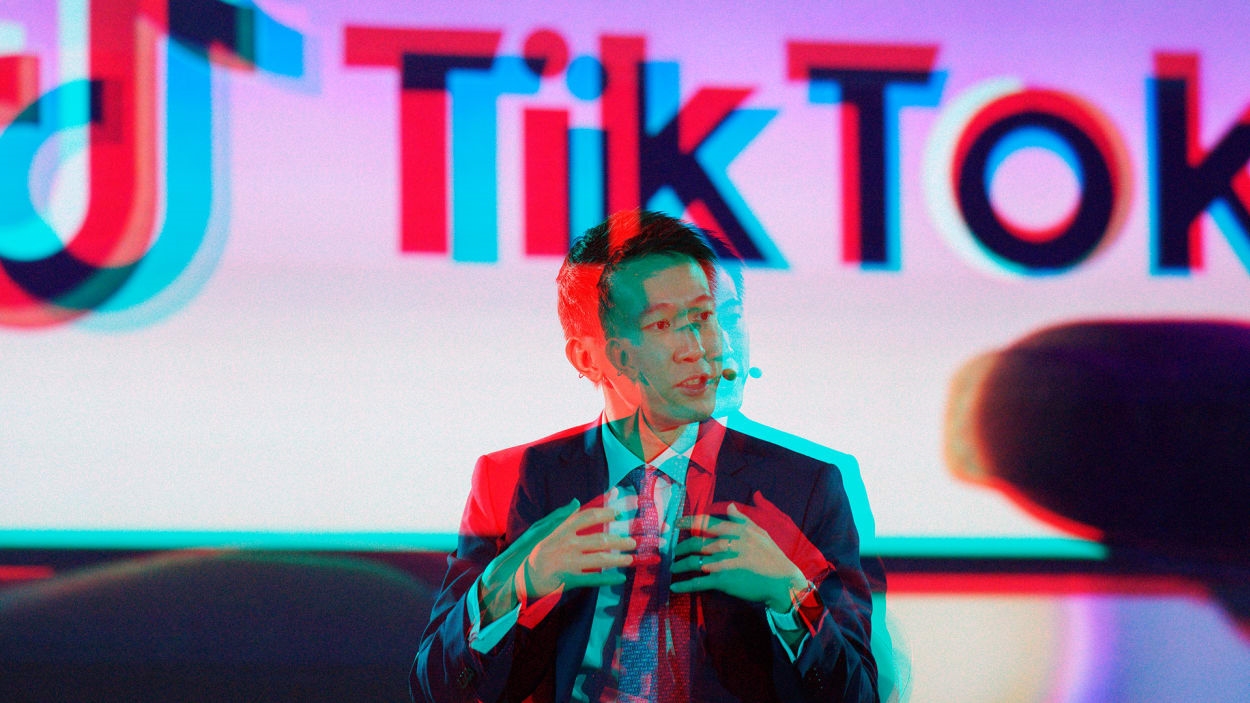A TikTok ban could bring about a global splinternet, experts warn
Later today, TikTok CEO Shou Zi Chew will testify at a Congressional hearing convened to determine whether the Chinese-owned company poses a major security risk to the U.S.
The hearing this week is likely to be make or break for the app’s future in the United States, with a cross-party consensus starting to build around banning TikTok from the country entirely. In what’s perhaps a precursor for what’s to come, a number of state-level and federal staff device bans have been introduced in recent weeks and months.
But experts predict the ramifications of any ban could extend far beyond the United States—and could jeopardize the future of the open, global internet.
“There’ll likely be some kind of retaliation or response from the Chinese government,” says Alena Epifanova, a research fellow at the German Council on Foreign Relations who specializes in internet policy.
It’s impossible to ignore the broader backdrop to the dispute—namely, that China was caught flying spy balloons over the United States and Canada earlier this year. TikTok’s vice president of public policy and government relations in Europe (where a similar government-level device ban has been enacted) has directly linked the spy balloon saga to the crackdown on the app.
Yet the fact remains that TikTok’s parent company operates out of China, and it has a documented history of spying on journalists using its app to try to identify the reporters’ sources—an effort the company claims was the work of a handful of rogue employees who have since been fired. That incident is now subject to an investigation by the FBI and the Department of Justice.
Investigating misuse of access to user data to try and root out journalists’ sources seems sensible. Banning it from being used by 150 million Americans may hint at the deeper context behind recent moves.
“I think we’re now in a situation where geopolitical technological conflict is going deeper,” says Epifanova, adding that the conflict between China and the United States over computer chips has been long running—but at arm’s length from everyday users. “Now it’s getting tuned to the day-to-day lives of many people.” Some experts fear that any ban that broadens limitations to TikTok to everyday users beyond government-linked devices would trigger repercussions that would go beyond the app’s billion-strong user base.
Take, for example, Western social media platforms and communication apps that are used to organize protests against the Beijing-backed government in Hong Kong. Those services could become inaccessible as a result of a tit-for-tat exchange of blocks and and bans between the U.S. and China. “I think the collateral damages are more damaging in the sense of if one country starts banning, others will follow, says Katja Muñoz, a research fellow at the German Council on Foreign Relations. “It might open up the floodgates for other states to also start banning big tech.”
One China-watcher, who asked not to be named, suggested that while Western social media platforms and services are already banned in China, they aren’t all banned in Hong Kong, which reports to Beijing, meaning Western apps’ availability in the region could be at risk.
But it’s not just Hong Kong that could be at risk, Muñoz says: Countries in financial and developmental debt to China could also be enticed to abandon Silicon Valley-owned platforms. “There’s no hard evidence [of a risk with TikTok to U.S. users in the way politicians claim],” she says—though the tracking of reporters is inexcusable, albeit one that other companies carry out on reporters at various levels. “The only thing that we have right now is that we know TikTok gathers a lot of data.” She’s worried that the exact same arguments U.S. lawmakers are using to argue for TikTok’s eradication or forced sale are ones that other countries will use against the established big-tech platforms who have their homes in Silicon Valley.
It’s not just China but its allies that experts are worried about. Epifanova pointed to a ban this week instigated by Russian President Vladimir Putin that bars officials working in his office from using iPhones. Epifanova worries that Putin’s move to stop iPhone access is a signal that we’ll see closer collaboration between Russia and China: Russia at present doesn’t have the technical know-how to sustain its own smartphone—but China does. “This is something to watch and worry about: two authoritarian countries creating more technological cooperation, which will lead to more surveillance of their societies,” she says.
For China and Russia, the path towards a splinternet—a cut-off, separate section of the internet solely for their citizens, which is more tightly controlled than the wider, Western internet—was already well-trodden. But action against TikTok by the U.S. that goes beyond the half measure of a government device ban would give them justification in their minds to further detach from the global internet.
“We will have this confrontation, and we will have this patchwork of different rules,” says Epifanova. “We’ll maybe have a kind of splinternet, where we have people live in a very different information environment, with very different information levels. I don’t think that’s the future we would like to have.”
(10)



